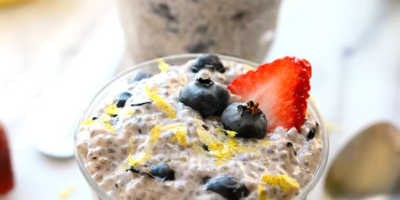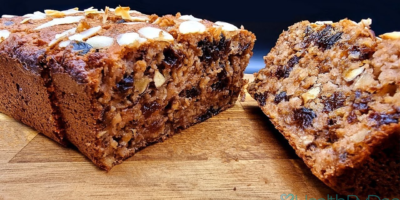Constipation is a common digestive issue affecting millions of people worldwide, characterized by infrequent bowel movements and difficulty in passing stools. Understanding the symptoms of constipation is crucial for early intervention and effective constipation remedies. Factors such as inadequate fiber intake, dehydration, and a sedentary lifestyle are among the leading causes of constipation that can disrupt your digestive health. Incorporating high fiber foods like fruits, vegetables, and whole grains can significantly alleviate symptoms and promote regularity. If you’re struggling with constipation, it’s essential to explore various remedies to restore balance and improve your overall well-being.
When we talk about infrequent bowel movements or difficulty in stool passage, we often refer to this condition as constipation. This digestive discomfort can manifest in various ways, including bloating and straining during bowel movements. Many individuals may find relief by understanding the underlying causes of this issue, such as dietary choices and lifestyle habits. By focusing on increasing fiber intake and staying hydrated, you can effectively manage this common ailment. Exploring alternative terms like bowel irregularity or sluggish digestion can also help broaden the conversation around this often-embarrassing subject.
Understanding the Symptoms of Constipation
Constipation can manifest through a variety of symptoms, making it important to recognize them early on. Straining during bowel movements is one of the most common indicators that you may be experiencing constipation. Additionally, many individuals report feelings of bloating and discomfort, which can be exacerbated by a lack of proper digestive health. These symptoms can significantly affect daily life, leading to frustration and a decreased quality of life.
Other symptoms of constipation include indigestion and headaches, which may not seem directly related but often arise from the body’s struggle to eliminate waste efficiently. Aggression and irritability can also occur, as chronic constipation can affect mood and mental well-being. Understanding these symptoms can help individuals seek timely constipation remedies and improve their overall digestive health.
Causes of Constipation: What You Should Know
There are various causes of constipation that can affect anyone, regardless of age or lifestyle. One of the primary culprits is inadequate fiber intake, as fiber plays a crucial role in promoting regular bowel movements. Without sufficient fiber from high-fiber foods such as fruits, vegetables, and whole grains, the stool can become hard and difficult to pass. Additionally, dehydration can exacerbate these issues, making it essential to consume enough fluids.
Another significant factor contributing to constipation is a sedentary lifestyle. Regular physical activity helps stimulate digestion and can alleviate many symptoms associated with constipation. Environmental factors, hormonal changes during pregnancy, and aging-related issues can also impact bowel activity. Understanding these causes is vital for developing effective strategies for preventing and treating constipation.
Effective Constipation Remedies to Try
When it comes to alleviating constipation, several remedies can be easily incorporated into daily routines. One effective method is to establish a regular eating schedule. Eating meals at the same time each day can help train the digestive system to function more efficiently. Moreover, increasing fluid intake is crucial; drinking 8-10 glasses of water daily can significantly improve bowel regularity.
Incorporating high-fiber foods into your diet is another powerful remedy for constipation. Foods such as oats, prunes, and various fruits and vegetables are excellent choices. Additionally, trying warm beverages, like water with lemon, can stimulate the digestive tract and promote bowel movements. Simple lifestyle changes, such as walking for 30 minutes each day, can also make a significant difference in managing constipation.
The Importance of Fiber for Digestive Health
Fiber plays a pivotal role in maintaining digestive health and preventing constipation. It adds bulk to the stool, making it easier to pass through the intestines. The recommended daily fiber intake varies by age, with adults needing around 25 grams per day. By including high-fiber foods such as fruits, vegetables, and whole grains in your diet, you can support your digestive system and reduce the likelihood of constipation.
Additionally, fiber can help regulate bowel movements by promoting the growth of healthy gut bacteria. This not only aids in digestion but also contributes to overall gut health. Foods like legumes, nuts, and seeds are excellent sources of fiber that can be easily added to meals and snacks. By prioritizing fiber in your diet, you can improve your digestive health and alleviate symptoms of constipation.
High Fiber Foods to Incorporate into Your Diet
Including high-fiber foods in your diet is essential for preventing and treating constipation. Foods like oatmeal, whole wheat bread, and various fruits such as apples and prunes are excellent sources of dietary fiber. For instance, just three tablespoons of oatmeal provide about three grams of fiber, making it a great breakfast option for those looking to improve their digestive health.
Moreover, dried fruits like figs and apricots are particularly beneficial due to their high fiber content. For example, three dried apricots can deliver around three grams of fiber. By consciously incorporating these high-fiber foods into your meals and snacks, you can significantly enhance your digestive health and reduce the risk of experiencing constipation.
Recognizing Chronic Constipation: When to Seek Help
Chronic constipation is defined as experiencing infrequent bowel movements or difficulty passing stool for an extended period. If you find yourself straining to have a bowel movement more than twice a week, it may be time to consult a healthcare professional. Recognizing the signs of chronic constipation is crucial, as it may indicate underlying health issues that require attention.
In some cases, chronic constipation can lead to more severe complications, such as hemorrhoids or fecal impaction. Therefore, it is essential to address symptoms early on and explore potential constipation remedies, including dietary changes and lifestyle modifications. Seeking medical advice can provide insight into effective treatments and ensure that you maintain optimal digestive health.
Lifestyle Changes to Prevent Constipation
Making simple lifestyle changes can significantly reduce the risk of constipation. One of the most effective methods is to increase physical activity. Regular exercise, such as walking or jogging, can stimulate the digestive system and promote regular bowel movements. Aim for at least 30 minutes of moderate exercise each day to keep your digestive health in check.
Additionally, establishing a routine around meals and bathroom breaks can be beneficial. Eating meals at consistent times and allowing yourself time to relax in the bathroom can help train your body to have regular bowel movements. Coupled with a diet rich in high-fiber foods and adequate hydration, these lifestyle changes can help prevent constipation effectively.
How Hydration Affects Constipation
Hydration plays a vital role in maintaining digestive health and preventing constipation. When the body is dehydrated, the colon draws water from the stool, making it harder and more difficult to pass. To combat this, it is essential to drink enough fluids throughout the day, aiming for at least 8-10 glasses of water. Staying hydrated allows the intestines to function optimally and helps keep the stool soft.
In addition to plain water, incorporating hydrating foods, such as fruits and vegetables, can also contribute to your overall fluid intake. Foods like watermelon, oranges, and cucumbers have high water content and can be delicious additions to your diet. By prioritizing hydration, you can significantly improve your digestive health and reduce the likelihood of experiencing constipation.
Delicious Recipes for Relieving Constipation
Exploring creative and delicious recipes can make addressing constipation more enjoyable. For example, a simple Constipation Jam made from dried figs, apricots, and plums can be both tasty and beneficial for digestive health. This easy-to-make recipe not only provides fiber but also offers a sweet treat that can be enjoyed daily. Consuming this jam regularly can promote healthy bowel movements.
Another great option is the Gut-Friendly Mix, which combines dried figs with kefir. This recipe not only offers a high-fiber snack but also introduces probiotics into your diet, further supporting digestive health. Incorporating these recipes into your weekly meal plan can make managing constipation a more pleasant experience and encourage better digestive health.
Frequently Asked Questions
What are the common symptoms of constipation?
Common symptoms of constipation include straining during bowel movements, bloating, indigestion, and a feeling of incomplete evacuation. You may also experience headaches and a general sense of discomfort. Recognizing these symptoms is crucial for understanding your digestive health.
What causes constipation and how can I prevent it?
Constipation can be caused by inadequate fiber intake, dehydration, a sedentary lifestyle, certain medications, and hormonal changes such as those during pregnancy. To prevent constipation, ensure you consume high fiber foods, stay hydrated, and maintain regular physical activity.
How can high fiber foods help alleviate constipation?
High fiber foods play a vital role in digestive health by adding bulk to your stool and promoting regular bowel movements. Foods like oats, fruits, and vegetables are excellent sources of fiber that can help alleviate constipation effectively.
What are some effective constipation remedies I can try at home?
Effective constipation remedies include increasing your intake of high fiber foods, drinking plenty of water, and incorporating physical activity into your routine. Additionally, recipes like a gut-friendly mix or constipation smoothie can provide relief.
How much fiber should I consume daily to avoid constipation?
Daily fiber intake varies by age, but generally, adults should aim for about 25 grams. Incorporating high fiber foods like fruits, vegetables, and whole grains into your diet can help maintain proper digestive health and prevent constipation.
Are there any specific foods I should eat to improve my digestive health and relieve constipation?
Yes, foods high in fiber such as oats, prunes, pears, and legumes are beneficial for improving digestive health and relieving constipation. Incorporating these foods into your diet can enhance bowel regularity.
Can dehydration contribute to constipation?
Yes, dehydration is a significant contributor to constipation. Drinking sufficient water is essential for maintaining healthy bowel movements. Aim for 8-10 glasses of water daily to support your digestive health.
What lifestyle changes can I make to prevent constipation?
To prevent constipation, consider adopting a routine that includes regular exercise, a balanced diet rich in high fiber foods, and adequate hydration. Establishing a consistent eating schedule can also promote digestive regularity.
Is it normal to experience constipation occasionally?
Yes, experiencing constipation occasionally is normal for many people. However, if it becomes chronic or is accompanied by severe discomfort, it may be wise to consult a healthcare professional for further evaluation.
What is the relationship between aging and constipation?
As people age, their bowel activity can decrease, leading to increased instances of constipation. Factors such as reduced physical activity, dietary changes, and certain medications can contribute to this issue, making it essential for older adults to focus on digestive health.
| Key Point | Details |
|---|---|
| What is Constipation? | A decrease in stool volume, frequency, and inadequate evacuation feeling. |
| Causes of Constipation | Inadequate fiber and fluid intake, sedentary lifestyle, medications, etc. |
| Symptoms | Straining, bloating, indigestion, headaches, aggression. |
| Solutions for Constipation | Eat regularly, drink water, consume high-fiber foods, exercise. |
| Daily Fiber Requirements | Varies by age; adults need about 25 grams per day. |
| High Fiber Foods | Oatmeal, whole wheat bread, apples, dried fruits, etc. |
| Recipes for Constipation Relief | Constipation Jam, Yogurt Remedy, Gut-Friendly Mix, etc. |
Summary
Constipation is a common digestive issue that can significantly impact one’s quality of life. Understanding its causes and symptoms is essential for effective management. This condition can arise from various factors, including dietary habits and lifestyle choices. Thankfully, there are numerous solutions and home remedies available that can alleviate constipation. By incorporating more fiber and hydration into your diet, maintaining regular eating patterns, and staying active, you can effectively combat this uncomfortable condition. Remember, if constipation persists, it’s important to seek medical advice.















Comments